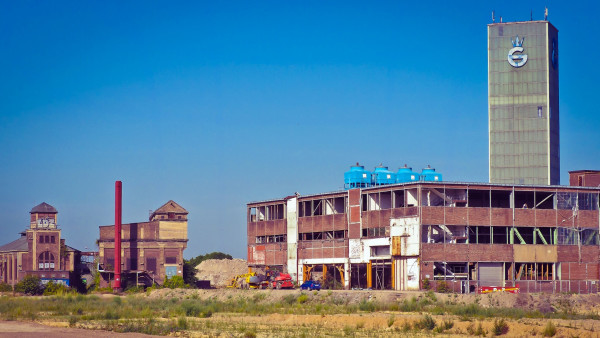

Brokers and money coaches have called for more support from government and local authorities to give the green light to brownfield housing development.
They told FTAdviser the rising demand for affordable housing, coupled with the cost of living crisis, necessitated a more joined-up approach to using brownfield sites to build homes in urban areas.
Financial coach Richard Bishop, founder of Money Trainers, said: "Planning permission is very slow. There are loads of issues.
"Brownfield land is massively under-used for homes, mainly because redeveloping brownfield sites requires additional time, resources, skills and budget and so it might not be the main focus for many housebuilders in the UK."
Also, contaminated soil is a "huge issue", Bishop said, which needed to be addressed when developing Brownfield sites. According to Bishop, this challenge may result in housebuilders not taking advantage of development opportunities.
Surrey Mortgage Broker founder Richard Bousefield, said: "There’s been talk of developing brownfield sites for ages. I'm pretty sure I remember [former Prime Minister] Gordon Brown talking about it.
"I think if they are viable places for people to live, with the right infrastructure, then absolutely I would support that."
Martin Stewart, founder of London Money, criticised the lack of progress since the government announced it would be supporting more brownfield developments in previous Budgets.
Stewart commented: "Those [politicians] say a lot of stuff - it is what manifestos are for: to get elected off the back of, and then shredded.
"They have no understanding of the market; there is too much greed, and too many housing ministers."
He added: "I read something that suggests only 2 per cent of England has been built on; despite what the racists say, we’re hardly running out of room."
However, Bousefield added it is not always that simple to build and get a mortgage on a brownfield site home.
He explained: "I’ve done a few mortgages for offices converted to flats over the years, and very recently I had one declined as the lender deemed it high risk (from a re-sale perspective).
"I did find this a little odd as there is supposed to be a housing shortage."
Urban projects
In June, research from new-build sales optimisation platform Unlatch revealed there was "sufficient brownfield land to create £463bn worth of new homes, with brownfield capacity seeing a significant annual increase".
Despite the government’s constant promises to use brownfield land to build more homes, analysis by Unlatch showed the amount of brownfield land available was actually increasing.
In 2020, there was capacity for just over 1mn homes to be built on brownfield sites. But the latest data shows this has increased by 9.6 per cent, to capacity for more than 1.1mn potential homes.
Head of UK for Unlatch Lee Martin said: "Brownfield sites are the ideal place to build new homes. Unlike greenbelt land, brown sites do nothing to detract from the nation’s natural beauty or open spaces.
"It’s little surprise, therefore, to see the government leaning heavily on these sites for their levelling up plans, but it doesn’t seem they’ve yet put their plans into action because the amount of available brownfield land has actually increased.
"We have to hope that the government follows through on its pledge to use this land and deliver the affordable homes that so many people need."
Their comments came as housebuilder Berkeley Group announced a 6 per cent pre-tax profit of £551.5m, up 6.4 per cent on the year before, largely as a result of its work on long-term urban regeneration projects.
While market commentators expressed concern about headwinds facing the UK economy, such as the rising cost of living, growing consumer indebtedness and signs of a slowdown in house price growth, others said the company's focus on brownfield regeneration could help it play the "long game" when it comes to developments.
Wealth Club's head of equities, Charlie Huggins, commented: "Berkeley is a lot more exposed to the London housing market for a start, but perhaps more importantly, it has a focus on long-term, urban regeneration projects.
"These are large, complex developments that can take many years to come to fruition. A good example Berkeley’s 25-year project to convert the 88-acre former gasworks and Heathrow parking site at Southall into 3,750 new homes, with 42 acres of green open space.
"Few other builders have the resources, expertise and risk appetite to undertake schemes like this. This has kept competition down and the cash gushing, for Berkeley and its shareholders."
Over the next couple of years, Berkeley has said it intends to invest hundreds of millions on developing its regeneration sites.
According to its statement to the market on June 21, Berkeley anticipates this will produce approximately £625mn of pre-tax profit for the year ending 30 April 2024, with a 50 per cent increase in the delivery of new homes.
Huggins added: "And if the housing market stays robust (which it might, given the chronic shortage of housing, especially in London), the group’s exciting development pipeline means it looks well placed to capitalise."
simoney.kyriakou@ft.com



